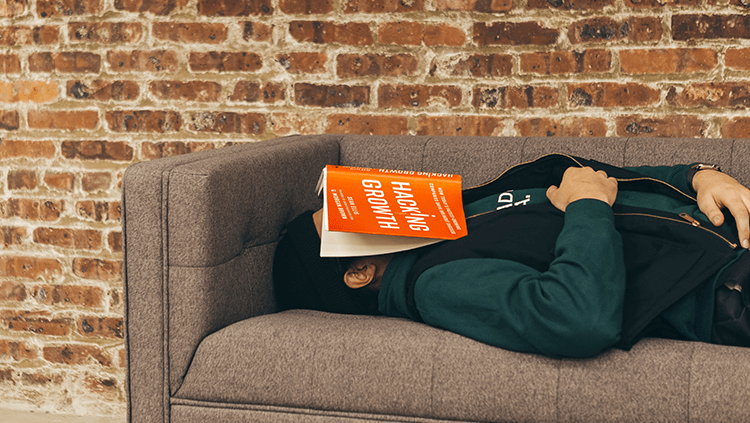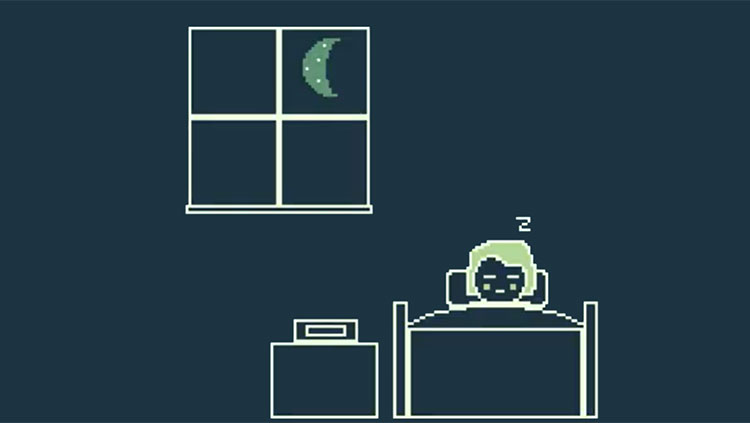
Smartphone apps and YouTube channels offer an easy way to learn Spanish: pop on a pair of headphones, drift off to sleep to the soothing sounds of “Buenos días” and “¿Cómo te llamas?”, and wake up with a new language under your belt. If this sounds too good to be true, that’s because it is.
“If you try putting on headphones and listening to a language-learning tape while asleep, you probably won’t get much out of it,” says psychologist Marc Züst.
That’s because learning new information isn’t quite so easy as popping in headphones and passively listening to taped lectures while you slumber — not yet, anyway.
Neuroscientists have known for decades that sleep plays an integral role in learning and memory. A pioneering study in 1924 demonstrated that people remembered nonsense syllables better when they slept a bit between learning them and being tested on them. This finding suggested sleep somehow protects memories from all those little interfering things that tend to help us forget.
Sleep is important for hitting the “save button” on new memories, says Scott Cairney, a psychologist at England’s University of York. And new research shows sleep offers much more than just passive protection for what we’ve learned during the day.
“It is now generally agreed that an active process takes place in sleep that stabilizes and transforms memories, making them more resistant to decay,” Cairney says. “This consolidation process is also important for learning new information, paving the way for new learning the next day.”
When you lay down to rest, your brain activity shifts from small, high-frequency waves to bigger, slower oscillations with bursts of activity called spindles. That shift promotes memory reactivation — the neurons that fired when you first formed a memory trace replay their firing pattern, strengthening the connections between them and the memory itself.
Cairney’s lab studies this using a technique called targeted memory reactivation. In one study, he asked volunteers to learn a series of word-image pairings, like the word exotic paired with a picture of a butterfly. Each pair was associated with a unique sound or tone. Then, when brain recordings indicated they’d entered deep sleep, Cairney’s team replayed some of the unique sounds. The next day, volunteers could more easily recall the pairs that had been cued up with the sounds overnight.
While the results show memory reactivation during sleep is crucial to memory, it seems the learning part of the program still has to occur during waking hours for any effect. But a recent study by Züst and his colleagues at the University of Bern in Switzerland suggests the sleeping brain is capable of absorbing new information — albeit, perhaps, unintentionally.
In the study, participants heard made-up words and their German translations during deep sleep. The brain oscillates between active phases, or “up-states,” and passive phases, or “down-states,” of activity during deep sleep. When presented with the made-up words the next morning, the volunteers were able to determine whether they represented large or small objects — but only if the word pairs were presented during the “up-state.”
“Based on these findings, we hypothesize that up-states constitute windows of opportunity to learn new information during slow wave sleep,” Züst says. The memory traces remained intact into the following morning, even though volunteers couldn’t recall ever seeing the words before. “It’s an implicit, unconscious form of memory,” he says.
But before you buy that sleep-learning app, Züst cautions that we still have a lot to learn before we can apply this research outside the lab. “Timing is key. Not all of slow wave sleep is conducive to sleep learning. You really need to hit those up-states,” Züst says.
Though we may one day be able to harness sleep to support learning, Cairney agrees we’re not there yet. “We are a long way off from using recordings to help save new memories or learn a new language,” he says. “But, that said, we do know that sleep is the glue that holds learning and memory together.”
So, if you really want to learn a new language, take a class during the day and concentrate on getting some quality ZZZ’s at night.
CONTENT PROVIDED BY
BrainFacts/SfN
References
Gaskell, M. G., Cairney, S. A., & Rodd, J. M. (2019). Contextual priming of word meanings is stabilized over sleep. Cognition, 182, 109–126. doi: 10.1016/j.cognition.2018.09.007
Jenkins, J. G., & Dallenbach, K. M. (1924). Obliviscence During Sleep and Waking. The American Journal of Psychology, 35, 605–612. doi: 10.2307/1414040
Züst, M. A., Ruch, S., Wiest, R., & Henke, K. (2019). Implicit Vocabulary Learning during Sleep Is Bound to Slow-Wave Peaks. Current Biology: CB, 29(4), 541-553.e7. doi: 10.1016/j.cub.2018.12.038
Also In Sleep
Trending
Popular articles on BrainFacts.org

















